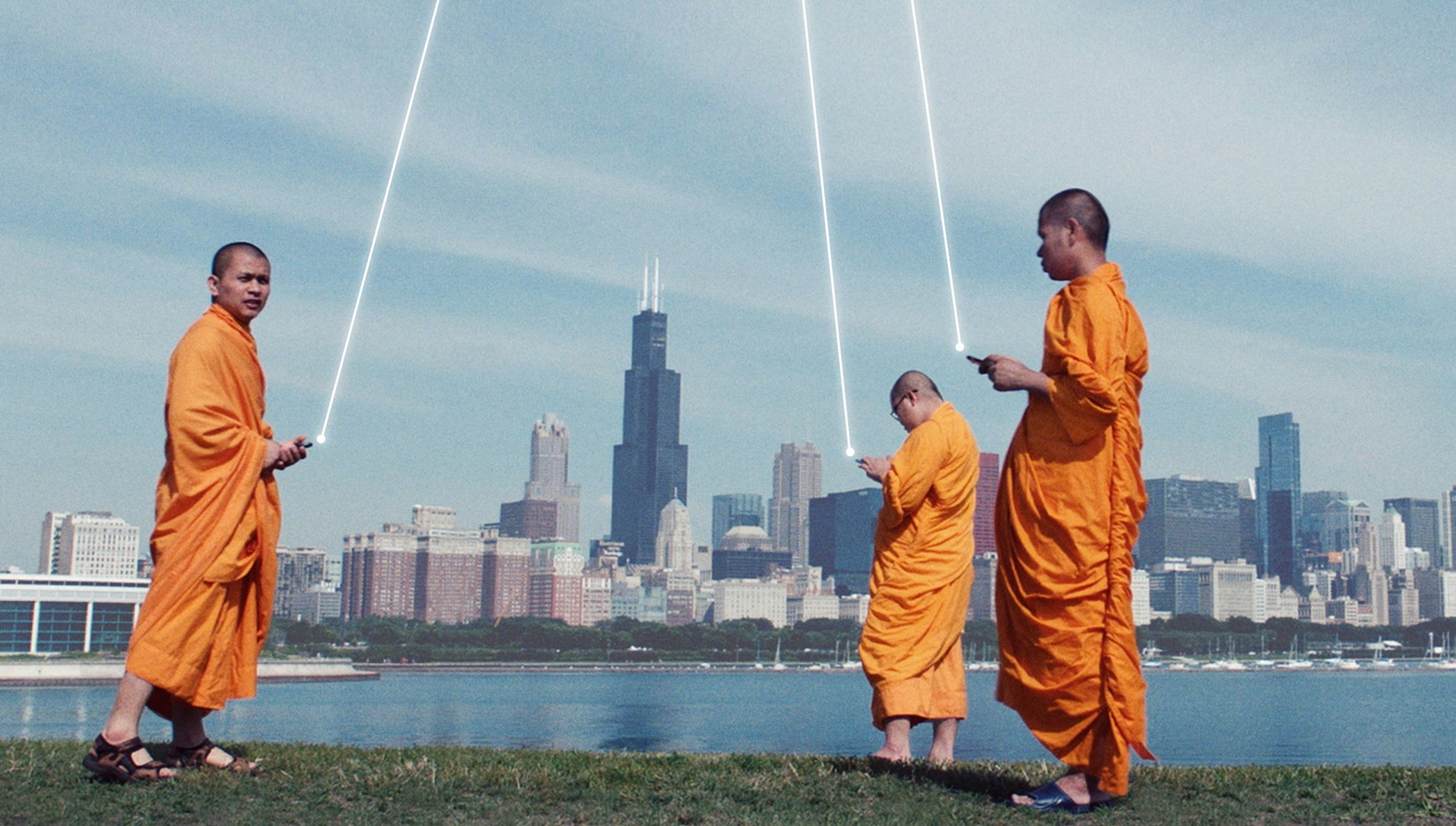
Lo and Behold: Reveries of the Connected World
Dustin Chase
Ah…Werner Herzog is one of my favorite filmmakers. Take this film, for instance, in which he mixes up technical jargon, scientific wonder, and humanitarian reflections while slyly slipping in bits of humor, such as—well, I won’t give it away, but when you hear an Elvis Presley song, you’ll likely agree with me. Lo and Behold is chock full of fascinating information, such as ‘Lo’ being the first message transmitted over the Internet (the machine crashed before ‘login’ could be completed). Leave it to Herzog to think of “Lo and Behold.” ‘Reveries’ is likewise a good choice, because the film is a thoughtful meditation that includes some of the history of computers and the Internet, the astonishing accomplishments with them, and musings/predictions about the future. Herzog asks provocative questions of the scientists he interviews that prompts scratching of the head as well as chuckles.
Lo and Behold is chock full of fascinating information.
The film is divided into ten segments that start with “The Early Days” (and we get to see the first computer that was used in developing the Internet) and ends up with “The Future”, in which the brain will be capable of remote sensing and transmitting information through non-physical channels to points outside itself). In-between, we hear about the glories of the internet, the dark side of it, life without the internet, the possible end of it, hacking as an advanced threat, people as being the source of threats to security, the extension of the internet to outer space, artificial intelligence, and the interface of humans with their computers and the internet.
Problems or possible problems are brought to our attention, such as internet addictions, hypersensitivity to radio waves and our electronic devices creating an illness, sun flares that are potentially disastrous, how humans would have a hard time existing without the internet (say, if sun flares wiped it out), and cyber warfare.
Ways that technology is altering humanity is shown, i.e., already, physical and digital life may be blurred, and currently, students are often not encouraged to do deep critical thinking. If machines eventually are able to do most jobs, and individual preferences are instantly gratified (sounds, lighting, temperature) whenever we enter a room, for instance, who will we be? Of course, the ultimate question is, “What makes humans human?”
Final Thought
A provocative film for contemporary times in the age of the computer and the Internet.
